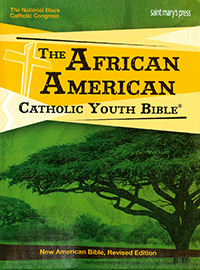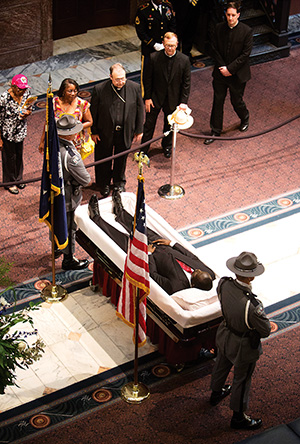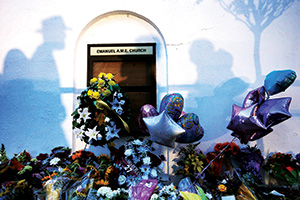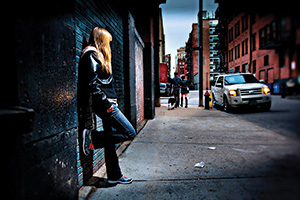SPIRITUAL ENRICHMENT
- CHATAWA St. Mary of the Pines Retreat Center, eighth annual, “Speak Lord I’m Listening,” retreat for men and women using the spiritual exercises of St. Ignatius of Loyola, Friday-Sunday, July 24-27. Led by Father Bill Henry. Cost is $140 per person, double occupancy, $160 per person for single rooms and $40 for commuters. Details: Charlene Brown, 601-248-4310.
- CLARKSDALE St. Elizabeth Parish, Latin Mass, Sunday, July 19, at 2 p.m. Father Scott Thomas, pastor, will celebrate.
- GLUCKSTADT St. Joseph Parish, 12-week adult summer Bible study, “Revelation: The Kingdom Yet to Come,” Wednesdays at 10 a.m. in Heritage Hall. Cost of the book is $22. Details: parish hall, 601-856-2054.
- MOBILE, Ala. – Little Sisters of the Poor discernment retreat, “Fun in the Sun,” Aug. 7-8 for single women 17-35, led by Father Victor Ingalls and the Little Sisters of the Poor. No charge. Details: Sister Carolyn, lsp, vocmobile@littlesistersofthepoor.org, 251-591-3700.
PARISH, SCHOOLS & FAMILY EVENTS
- AMORY St. Helen Parish vacation Bible school will be held in conjunction with First Presbyterian Church Sunday-Tuesday, July 19-21, from 5 – 8 p.m. at the parish. Supper will be served each evening.
– Annual cookout for both churches, Wednesday, July 22, at 6 p.m. in the parish hall. St. Helen parishioners will be responsible for desserts. - BOONEVILLE St. Francis of Assisi Parish, vacation Bible school, “Come to the Feast,” Tuesday, July 14, from 9 a.m. – 2 p.m for children ages four- years to fourth grade.
- CLEVELAND “Life After Loss,” help and support group meets at St. Luke Methodist on Tuesdays at 6:30 p.m. Details: Our Lady of Victories Parish office, 662-846-6273, or Larry Lambert, licensed counselor, 662-719-8756.
- GRENADA St. Peter parishioners are invited to attend the “Casting Crowns” concert and pre-concert party in Greenwood on Saturday, July 18. Tickets are $25. Details: Tara Trost, 662-515-9126.
- GREENVILLE St. Joseph Parish, vacation Bible school, July 13-16 from 5:30 – 8:30 p.m. for children attending five-year-old kindergarten through fifth grade. Details: Mary Ann Barker, 662-335-5251.
- HERNANDO Holy Spirit Parish, boat ride at the Reelfoot Lake, Wednesday, July 15. Participants will meet at the church parking lot at 5:30 a.m. and get back that evening about the same time. The cost is $10 per person. Details: holyspiritladies@gmail.com or call Cil, 662-420-9875.
– Parish fair planning meeting, Wednesday, July 29, at 2 p.m. Details: Missi Blackstock, 662-822-1862. - JACKSON The Rite of Christian Initiation of Adults (RCIA) workshop, scheduled for July 18, was rescheduled for January or early February. Details: Fran Lavelle, 601-960-8473, or fran.lavelle@jacksondiocese.org.
- JACKSON St. Richard Parish, family game night, Thursday, July 16, from 5:30 – 8 p.m. in Foley Hall. Bring your own beverages and $5 for pizza.
– “Sonnets, Strings, and Things,” Sunday, July 19, at 2 p.m. Reading of poems and musical entertainment by Jake Slinkard, a graduate of St. Joseph School. - JACKSON Holy Family Parish, strategic plan meeting for 2015-2016, Saturday, July 25, from 10 a.m. – 2 p.m. Past, present and future parishioners invited.
- JACKSON The Knights of Columbus, pro-life rosary, Saturday, July 25, at 9 a.m. at the Marian Prayer Garden beside the cathedral. St. Peter parishioners are invited.
MADISON St. Joseph School sixth annual Bruin Burn, Saturday, July 18, beginning at 7 a.m. at St. Anthony Catholic School, 1585 Old Mannsdale Road. 5K Run/Walk is $25 per person, and the one-mile fun run is $15 per person. Register online at www.racesonline.com. Details: Bubba Garrard, 601-668-8571, bgarrard06@gmail.com. - MERIDIAN St. Patrick Parish, vacation Bible school, July 13-16 from 5:30 – 7:30 p.m. for children who have completed kindergarten through fifth grade. Details: Ashley Alexander, 601-934-7160.
- NATCHEZ St. Mary Basilica, “Directors Chorus” Wednesday, July 22, at 7 p.m. Presented by the Mississippi Chapter of the American Choral and Director Association and directed by Dr. Jo-Michael Scheibe, director of Choral Activities at the University of Southern California. Free and open to the public.
– Blood drive, Monday, July 27, from noon – 6 p.m. in the O’Connor Family Life Center. Schedule your appointment at www.unitedbloodservices.org. - TUPELO St. James Parish feast day, Saturday, July 25, pilgrimage walk along the Natchez Trace. Meet at the church at 7:30 a.m. to be shuttled over to the Chickasaw Village to start the walk at 8 a.m. There will be a spiritual pilgrimage in the church beginning at 9 a.m. Afterwards, there will be a breakfast in Shelton Hall provided by the Hispanic community.
– Confirmation will be held during the vigil Mass on July 25 at 4:30 p.m. in Shelton Hall.
– Parishioners are invited to attend “Dancing Like the Stars,” Saturday, Aug 22, at the Bancorpsouth Center. An evening that raises money for the Boys and Girls Club of North Mississippi. Tickets are $50 for the show and dinner and $20 for the show. Details: www.bgcnms.org/nikki-ivancic.aspx, - –SHAW St. Francis of Assisi Parish, summer social with cookout, Sunday, July 26, at 6 p.m.
ADDENDUM
The First Communion and confirmation photos from Olive Branch Queen of Peace, New Albany St. Francis and Ripley St. Mathew’s published on the edition of June 26 were taken by Joseph Swords.
CASH CRAWL
JACKSON Catholic Charities inaugural “Cash Crawl” during Fondren’s First Thursday, Aug. 6, from 11 a.m. – 8 p.m. This is a fund-raiser for the Rape Crisis Center with an opportunity to take home $1,000.
Entry fee is $25. Tables will be set up along State Street and throughout Fondren for your chance to play along. Visit participating merchants and draw a card to enter for a chance to win the big prize.
IN MEMORIAM
INDIANA – A Mass of Christian Burial for Sister Mary Junkin, D.C., was celebrated June 27 at Seton Residence Chapel in Evansville, Ind. Burial followed at St. Joseph Cemetery in Evansville. Sister Junkin died June 24 at Seton Residence. She was 89 years of age and spent 62 years as a Daughter of Charity of St. Vincent de Paul.
Sister Junkin began her ministry in education at St. Joseph School in New Orleans. She taught at Cathedral Schools in Natchez from 1973-1974 and served as principal from 1974-1981. She also served as librarian at the school and at St. Mary’s Parish.
She is survived by her sister, Marty (J.W., III) Seibert of Natchez, nieces and nephews.

 The Office of Black Catholic Ministry is distributing hundreds of African American Youth Bibles to schools and parishes across the diocese. The Bibles are funded through a grant from the Extension Society and Black and Indian Missions.
The Office of Black Catholic Ministry is distributing hundreds of African American Youth Bibles to schools and parishes across the diocese. The Bibles are funded through a grant from the Extension Society and Black and Indian Missions.

